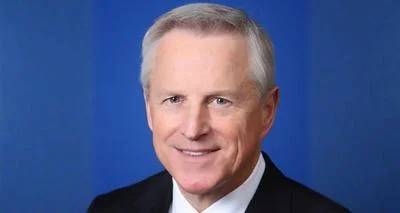Washington, D.C.-House Energy and Commerce Committee Republican leader for Communications and Technology Bob Latta (R-OH) called out Big Tech censorship today at a subcommittee hearing on Section 230 reform.
Excerpts and highlights from his remarks:
REPUBLICAN SECTION 230 REFORM
“Republicans on the Energy and Commerce committee are leading on ways to hold Big Tech companies accountable for the harms caused by their platforms. In January, we announced our Big Tech Accountability Platform, which began our efforts to take a comprehensive look at ways to reform section 230. I am proud Republicans have been focused on and remain focused on reconsidering the extent to which Big Tech deserves to retain their significant liability protection.
“Every step of the way, we have encouraged our Democratic colleagues to join us in this quest to hold Big Tech accountable while evaluating how we can reform section 230. We sought input from the public on their concerns with Big Tech; from stakeholders on ways to stop censorship while protecting small businesses and innovation; and from members of Congress on proposals that they supported.
“Hearing from the public, stakeholders, and members of Congress informed the discussion drafts that every Republican on this committee released in July. Our discussion drafts range from amending section 230 to hold Big Tech accountable for taking down constitutionally protected speech and facilitating illegal drug sales to increasing transparency requirements on how social media companies moderate content."
BIG TECH HIDES BEHIND OUTDATED LAWS TO CENSOR
“Section 230 became law in 1996 in response to several court cases, most notably Stratton Oakmont vs. Prodigy Services, to allow online platforms to moderate unlawful or indecent content without fear of liability. It has two main components: a provision that exempts platforms from being liable for content that is posted on their site by a third-party user, and a second provision that exempts platforms from being liable for content that they remove in ‘good faith.’
“The Internet has grown substantially since 1996, and it is clear Big Tech has abused this power granted to them by Congress. They censor conservative voices and use algorithms to suppress content that does not fit their narrative. They hide research that shows the negative impact their platforms have on the mental health of kids. They allow the sale of illegal drugs on their platforms, including Fentanyl, which we know is killing Americans every day.
“While these actions are happening on Big Tech platforms, users have no recourse. When conservatives are silenced, the appeals process, if it exists, can be difficult to navigate. Big Tech hides behind section 230 to avoid liability for real world harms their platforms are causing, including harms to our children. Section 230 is supposed to protect platforms for removing content in ‘good faith,’ but says nothing about their liability for when they are acting as bad stewards of their platforms."
MORE CENSORSHIP IS NOT THE ANSWER
“To address this issue, I authored a carve out from section 230 protections for platforms that purposely promote, solicit, or facilitate material by another information content provider if the platform knew or had reason to know that content would violate criminal Federal law.
“When Big Tech acts as bad stewards of their platforms, or as “Bad Samaritans," they should no longer be entitled to protections under section 230.
“We will also discuss legislation noticed on today’s hearing that I am concerned could lead to unintended consequences, like curtailing free speech and innovation. Section 230 reform must be taken seriously, and any legislative proposal that eventually gets enacted must be vetted thoroughly.
“We are at a pivotal time for free speech in America. It is our generation’s turn to uphold the rights on which our country was founded."








